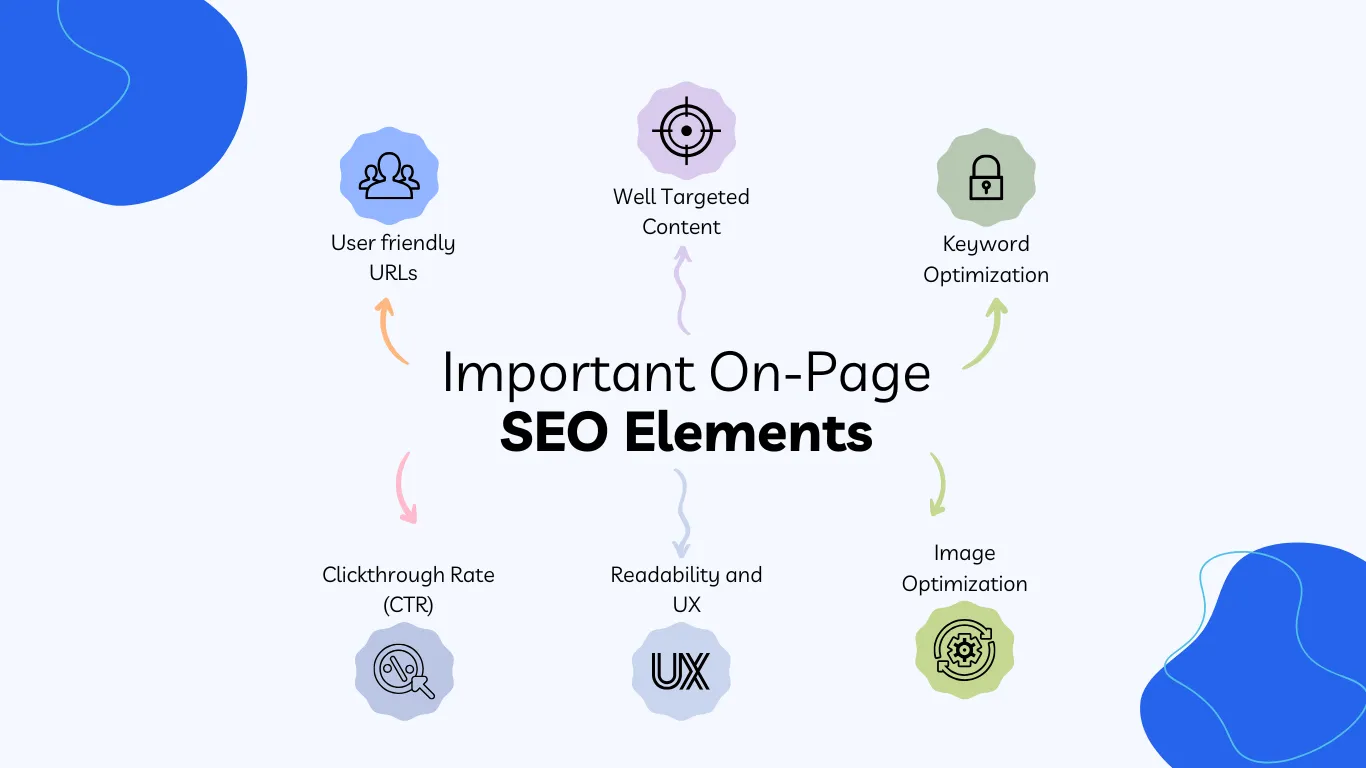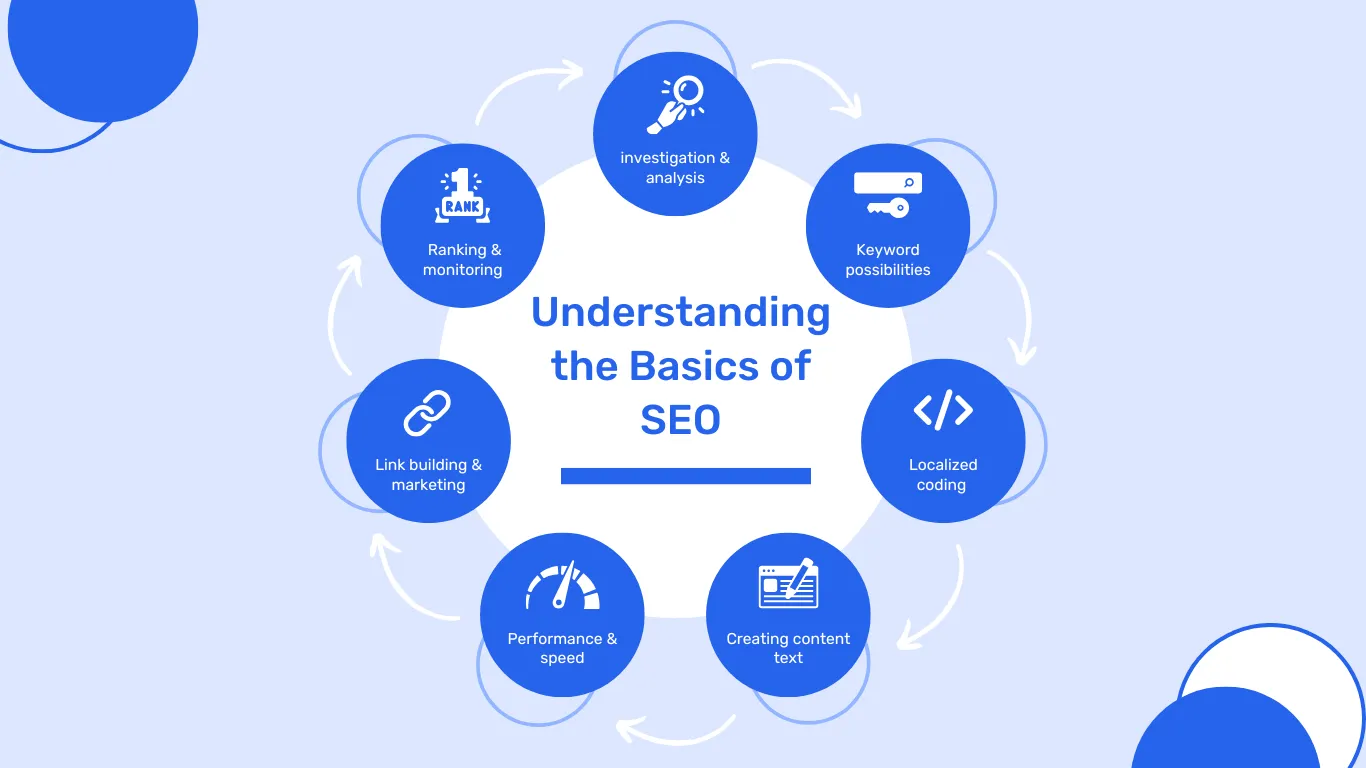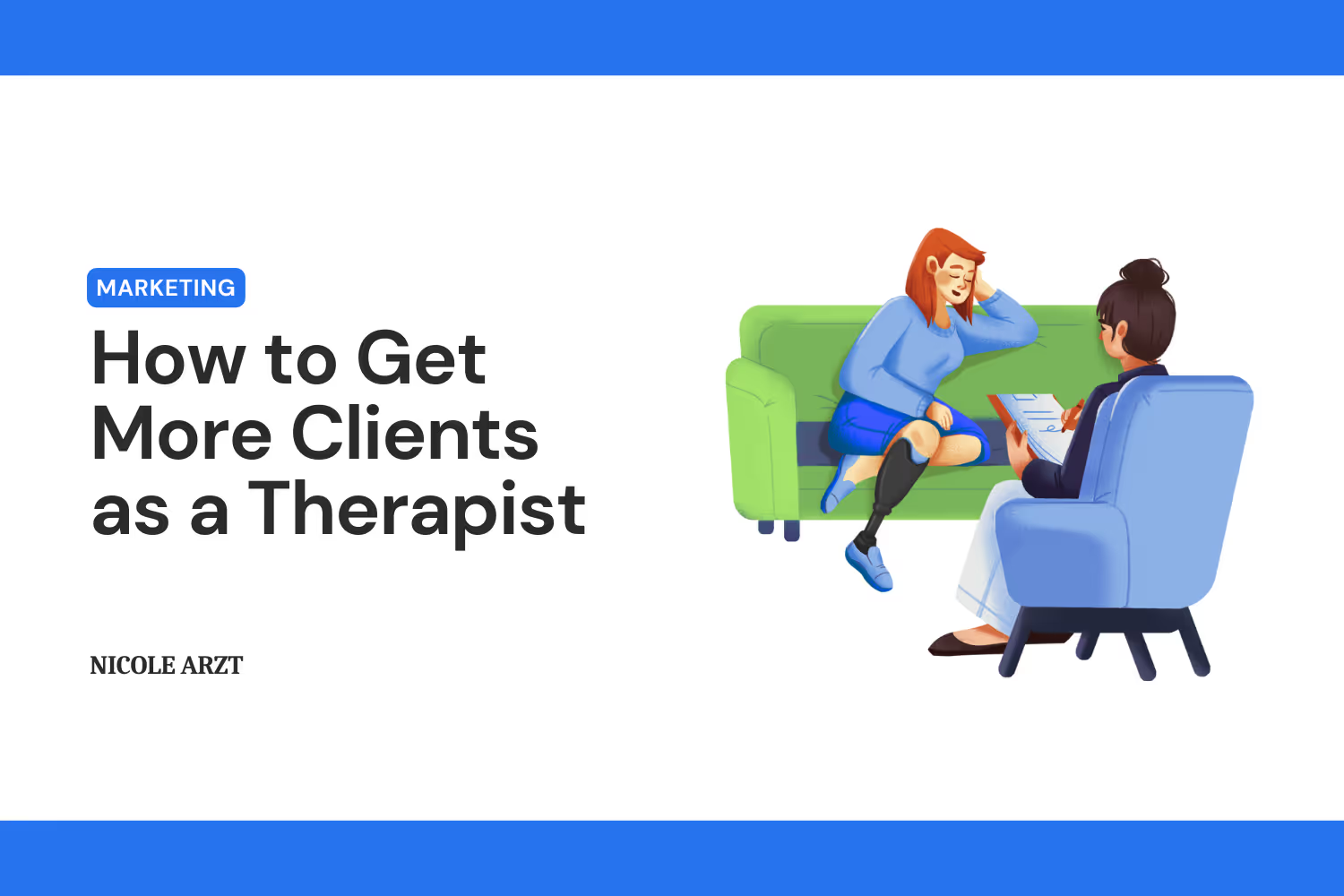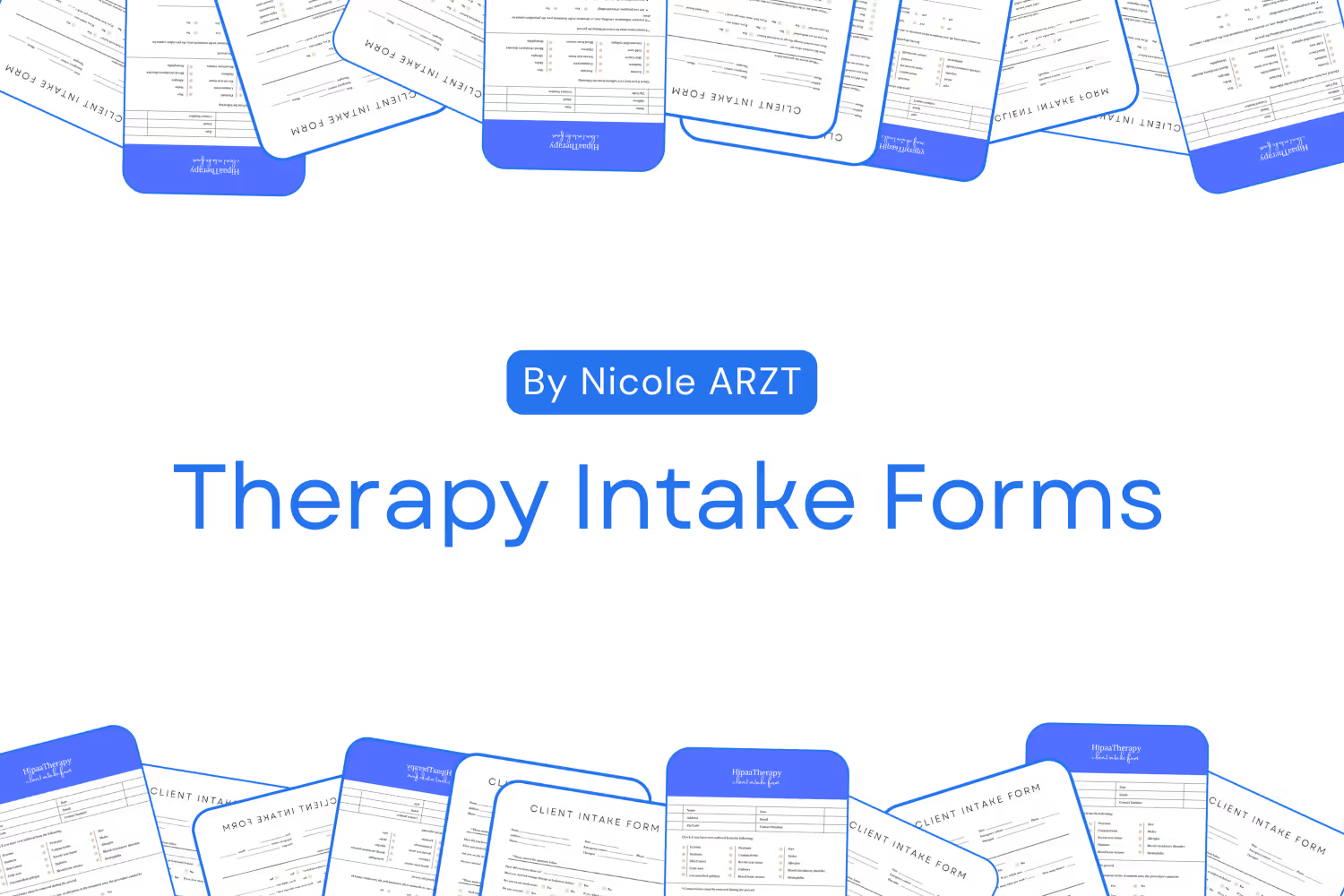If you’re a therapist trying to navigate the complexities of search engine optimization (SEO), you’re not alone if you feel overwhelmed. There’s so much competing information out there, and it can be hard to know what’s actually relevant, accurate, or even feasible. With that said, you certainly want to ensure that your online presence reaches (and speaks to!) the people who could most benefit from your services.
As a professional content writer and therapist myself, I’ve been helping therapists with SEO for over a decade. Here are my best tips for knowing how to integrate SEO into your website, audit your current SEO efforts, and determine how and what to outsource.
Understanding the Basics of SEO

SEO sounds very complicated, but the simplified version is this: SEO is about deliberately a website that attracts your practice’s ideal clients. When done effectively, your site will show up in these clients’ search results, making it more likely for the right people to click on your site and contact you.
With that, here is what you need to focus on:
Engage in Effective Keyword Research
How do you find anything on Google? By entering specific terms and scanning through the search engine results. Clients use this same approach to find you. Therefore, your main priority must be ensuring that your website captures those search terms naturally.
You can perform keyword research by using specific tools like:

Ubersuggest: This tool is free, and it provides information about SEO keyword difficulty, cost per click (CPC), and search volume history.
Ahrefs: AHREFS has a free tool where you can input a keyword, and it will evaluate its search volume and keyword difficulty. Its premium plans offer more insights into other SEO metrics and traffic potential.
Semrush: Their keyword magic tool gives useful data on keyword difficulty and other related keyword suggestions. However, it’s one of the more expensive tools.
Outside of these tools, don’t overlook the importance of thinking like your clients. This is key when considering your keyword research process. For example, many clients are likely to search terms like, “anxiety therapist near me” or “therapist for new moms that takes Anthem insurance.” Remember that you (not Google) know best what clients are struggling with!
Strengthen Your Website Optimization
Think of your private practice website as your virtual storefront. Do you want to walk into a store with poor lighting, an unkempt interior, and a dirty restroom? Probably not. Your website’s appearance, speed, and ease of use play a key role in determining whether potential clients stay or leave.
Google rewards sites that are intuitive and user-friendly. This is part of technical SEO, and this encompasses how fast and efficient your site is.
Make sure your site loads quickly: Opt for clean, minimalistic designs and try to avoid clunky images or graphics. Site speed really matters- research shows that 40% of online users will leave a website that takes longer than just 3 seconds to load. You can use Google PageSpeed to check your site’s current performance.
Always prioritize mobile optimization: More and more people use their phones to search for services. Your site needs to be easy to navigate on mobile, so make sure all text and forms are easy to interact with on various screens.
Make all contact forms and navigation straightforward: Potential clients should be able to access the main parts of your site (About page, FAQ, Contact form) as quickly as possible.
Embrace High-Quality Content
No matter how much you can automate or delegate, high-quality content always matters. You can buy all the fancy SEO tools, but in a profession as intimate as this one, trust matters, and your content should sound like you. Generic marketing fluff or AI-generated content often backfires.
Write how you speak: Write the way you’d speak during a therapy session. Unless you use a ton of clinical jargon at work, don’t use it on your website. If you tend to be a bit humorous with clients, don’t be afraid to reveal that part of yourself. You want clients to feel like they’re connected to you when they interact with your website.
Consider your ideal client and speak to them: Use words and phrases that actually resonate with the kinds of people you hope to work with. Aim to be relatable and describe how you can best support their current struggles. For example, if you work with young adults with anxiety disorders, you might say, It’s so exhausting to deal with anxiety. You’re probably so frustrated by all the cliched advice telling you to “just relax” or “take a walk!”
Tell a story: Good content resembles good storytelling. Don’t be afraid to use metaphors or applicable examples to highlight your client’s concerns or share how you might help them. For instance, you might say, “It can feel as if you’re the only one experiencing this. At times, the shame may seem unbearable. You might be aware that you’re struggling, but you feel stuck with what to do about it.”
Prioritize Local SEO
If you have a physical office, prioritizing local SEO is crucial for building your research. Many clients engage in local searches when finding providers, and you want to make sure you’re speaking to your target audience when structuring your site.
Here are some basic tips:
Google Business Profile: Claim and verify your profile for free at Google Business. Include your business address, practice name, and other relevant contact information. Consider uploading a headshot and pictures of your office.
Use local SEO keywords: Aim to use local SEO target keywords throughout your site. For example, you might use phrases like Trauma therapist in Los Angeles or NYC DBT therapist. Local keywords should be specific to your city or state.
Take advantage of local directories and listings: It’s no secret that major sites like Psychology Today and GoodTherapy dominate the first page of any Google search. It’s unlikely that any of your SEO efforts will outpace theirs. So, instead, aim to make yourself visible on different directories and listings. More visibility almost always tends to be a good thing.
Regularly Assess Your SEO Strategies

It’s important that you routinely audit your website content and overall search engine rankings. This ensures your SEO strategy is working- and it can offer insights into what may need to change.
You can do this in several ways, including:
Using Google Analytics: This is a free tool that allows you to view how many visitors land on your site, which pages gain the most traffic, and where the visitors come from (i.e. Google search, social media accounts, etc.)
Adding “how did you find me?” on your contact form: If more clients are indicating they found you searching online or by Googling a specific term, this may be a good sign that your SEO efforts are working!
Checking your Google rankings: You can manually search for your site on Google (use incognito mode for more accurate results). Try looking up “therapist in (your city)” or “(your specialty) therapist in (your city)” to see how you compare to other mental health professionals.
Using premium SEO tools: I recommend Semrush or Ahrefs for a more in-depth analysis of your on-page SEO, link-building strategies, or overall keyword research. These tools provide
Consider Outsourcing Certain SEO Aspects
There’s no doubt that running a therapy practice is logistically and emotionally demanding. You just may not have the time or bandwidth to monitor SEO at this point in your career. With that, it can be frustrating to try to focus on SEO when you have other important tasks to consider.
It may be a good idea to consider outsourcing if:
- you want to expand your reach or scale your private practice (i.e. you’re getting licensed in multiple states, you run a group practice, or you want more visibility on other search engines)
- your site isn’t ranking despite persistent SEO efforts
- you feel you’re spending too much time tweaking your SEO and feeling burnt out, resentful, or apathetic about the process
If you do decide to outsource, be diligent in your search. Unfortunately, many SEO services use enticing marketing tactics that don’t necessarily align with a therapist’s vision. Some good questions to ask are:
- Can you show me some other therapist sites you’ve worked on recently?
- How specifically will you improve my SEO or website ranking?
- How do you track and share my website progress?
- What exactly is included in your pricing?
- Can you offer any references for your work?
Final Thoughts on Improving Your SEO
SEO is often known as a “marathon.” You won’t start ranking overnight, and it can take up to six months to start seeing results. That said, if you aren’t getting as many inquiries as you’d like, it may be time to reassess your SEO strategy.
Remember that it’s okay to start slowly- SEO can be a trial-and-error process. Focus on what’s working well for you and remember to avoid comparing yourself to other therapists. There are plenty of clients to go around- they just need to have a good way to find you!










